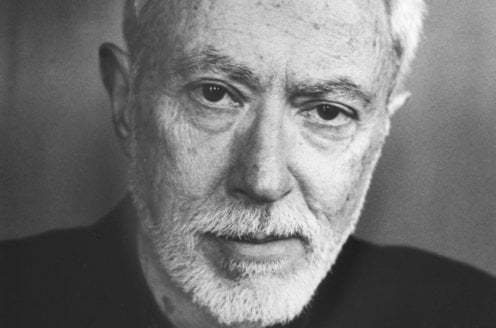John Michael Coetzee, winner of the 2003 Nobel Prize for literature, was also the first author to win the Booker Prize twice: in 1983 for Life and Times of Michael K. and in 1999 for Disgrace. Both novels, although very different, show Coetzee's interest in exploring the common ground between the personal and the political, and the devastating effects the bigger social picture can have on individual lives.
Coetzee
is a South African author, English is not his first language (although it was his
mother's language) In this respect he has something in common with the British
author of Polish origin Joseph Conrad, and the American author of Russian origin,
Vladimir Nabokov. Like them, he became a master of style in an acquired language.
His decision to write in English rather than Afrikaans came partly through
education, and partly through his awareness that English, with its rich
literary history and wide usage, opens doors to thematic inter-culturalism.
Coetzee's
novels frequently establish dialogues with various historical ages and territories.
In Waiting for the Barbarians (1980), the imaginary setting and time, filtering
reality through allegory, clearly allude to the racist South Africa of which he
has first-hand experience, and which is the main focus of his writing.
Similarly, although the setting of Life and Times of Michael K. (1983) is
unspecified, the novel tells the story of a group of characters living at the
time of the fall of the apartheid regime. For the young gardener Michael K.,
who takes his mother back home through a country devastated by war, her death
on the journey is a more overwhelming tragedy than the brutal macrocosm in
which he lives could ever be.
Coetzee's
novels are replete with complex intertextual allusions, and an omnipresent
metafictional commentary which won't let us forget that he is also a professor
of literature. In Foe (1987) and The Master of Petersburg (1994), he
establishes stylistic dialogues with Defoe and Dostoevsky, his favourite
authors, on whose work he draws heavily. Historical allusion is used on the
level of form as well as content, as Coetzee reads the contemporary human
condition through postmodern stylistic pastiche.
Disgrace, Coetzee's most famous novel, and the most powerful on apartheid, dispenses with the refined erudition of earlier novels and presents difficult issues, such as cross-racial and intra-racial relations through the personal experience of the characters. The blurred distinction between the conflicts to which such issues give rise reinforces the awareness that there is no way to exclude historical and political forces from the private lives of individuals.
In
Disgrace, before facing the shock of his daughter Lucy's rape by three black
men. Professor David Lurie has himself committed a comparable moral
transgression. The action which triggers his dismissal from the Cape Town
Technical University, his affair with a student, makes him guilty not only of a
loss of a sense of reality, an attempt to conflate real life and the work of
Romantic poets which he teaches and writes about, but also of taking advantage
of his privileged position as a professor.
Having
lost his university job, Lurie finds refuge with his daughter, at her farm in
Salem, Eastern Cape. In this forsaken place he discovers new meanings to
existence, as he contemplates the similarities between human destiny and that
of the dogs which, at the vet clinic. Lucy's best friend Bev Shaw puts to sleep
when they can no longer be saved.
Coetzee's
intention in Disgrace was not to write a political manifesto, but to portray a
real life experience which, even if atypical, presents an optimistic view of
the future of a country long divided by conflict. It can be read as an
alternative way to express the damage done, by prejudice, to people's lives.
Happiness may come from the satisfaction of being able to put an end to
suffering, as Bev Shaw does for the dogs. But apart from death, Coetzee seems
to say, there are few absolute truths.
Elizabeth
Costello (2004) seems to mark a return to the intellectual sophistication of
Coetzee's earlier work, and a setting aside of his commitment to the South
African arena. With its biographical and philosophical over tones the novel
challenges its own status as a novel, by breaking through the boundaries of the
genre with bursts of complex intellectual discourse. There are many
similarities between the heroine and her author: a reluctance to accept
literary celebrity and its world of false self-appraisal, and a fear of
prejudice, of fixed beliefs that will not lend themselves to change. A plea for
thinking and open-mindedness, this novel is ultimately, faithful to Coetzee's
overriding philosophy that prejudice is the most serious danger humanity has to
face.

No comments:
Post a Comment
looking forward your feedbacks in the comment box.